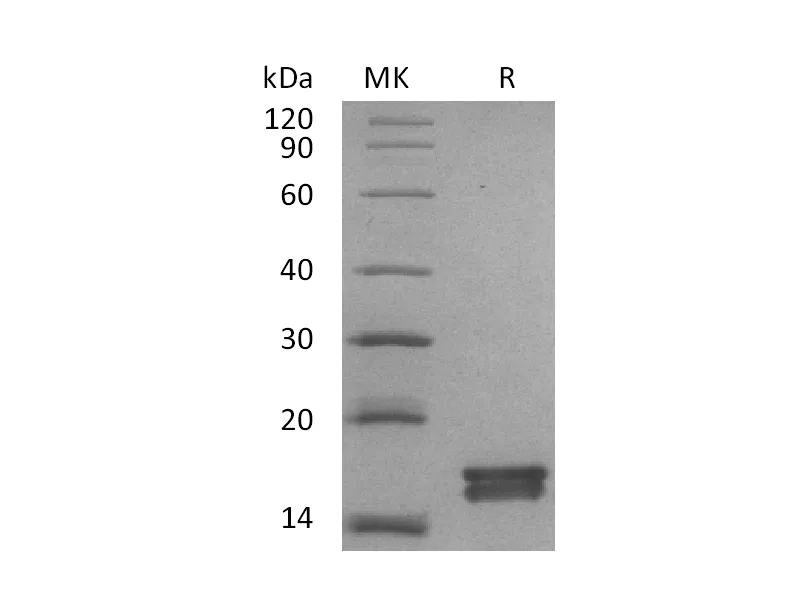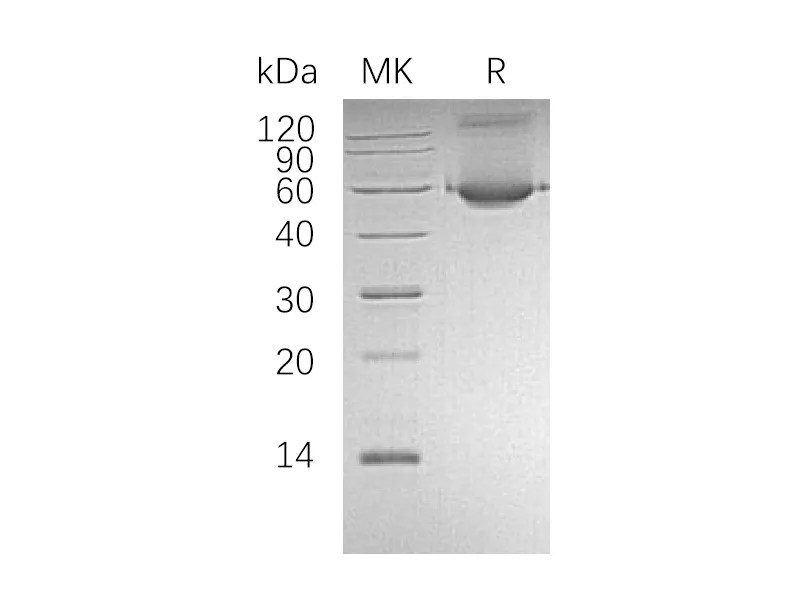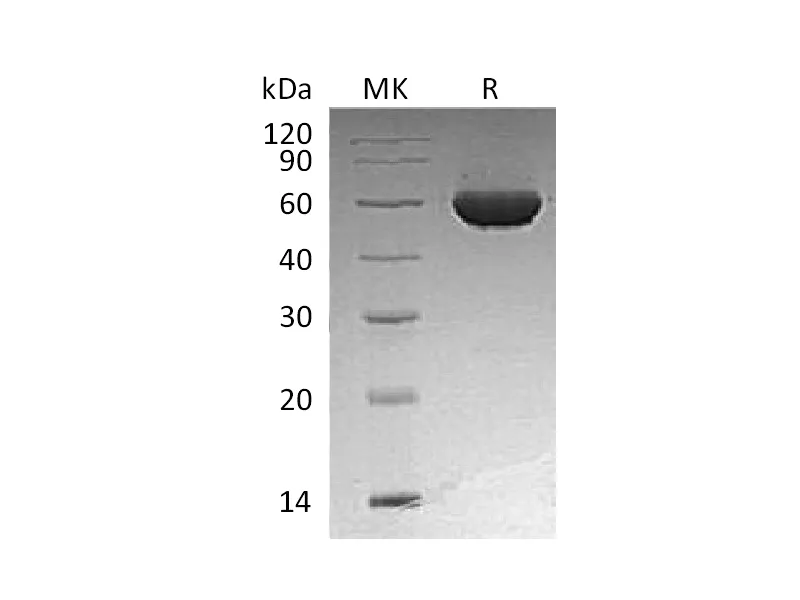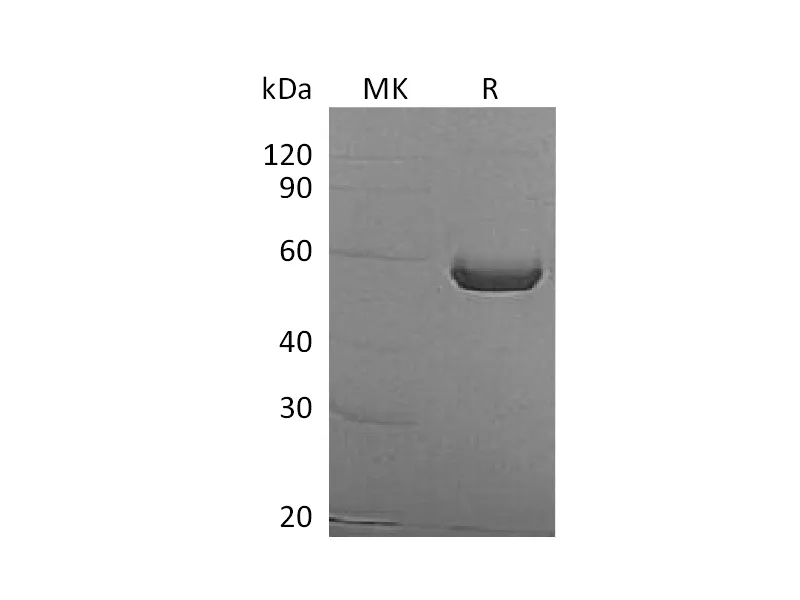Alternative Names
Protein CYR61;CCN family member 1; Cysteine-rich angiogenic inducer 61;Insulin-like growth factor-binding protein 10 ; GIG1; CYR61; CCN1;IGFBP10;
Background
Protein CYR61, also known as CCN family member 1, Cysteine-rich angiogenic inducer 61,Insulin-like growth factor-binding protein 10 , GIG1, CYR61, CCN1 and IGFBP10, belongs to the CCN family, CYR61 is a secreted protein and contains one CTCK (C-terminal cystine knot-like) domain,one IGFBP N-terminal domain,one TSP type-1 domain and one VWFC domain. CYR61 promotes cell proliferation, chemotaxis, angiogenesis and cell adhesion. CYR61 plays important roles in inflammation and tissue repair. CYR61 is associated with diseases related to chronic inflammation, including rheumatoid arthritis, atherosclerosis, diabetes-related nephropathy and retinopathy, and many different forms of cancers.
Note
For Research Use Only , Not for Diagnostic Use.




